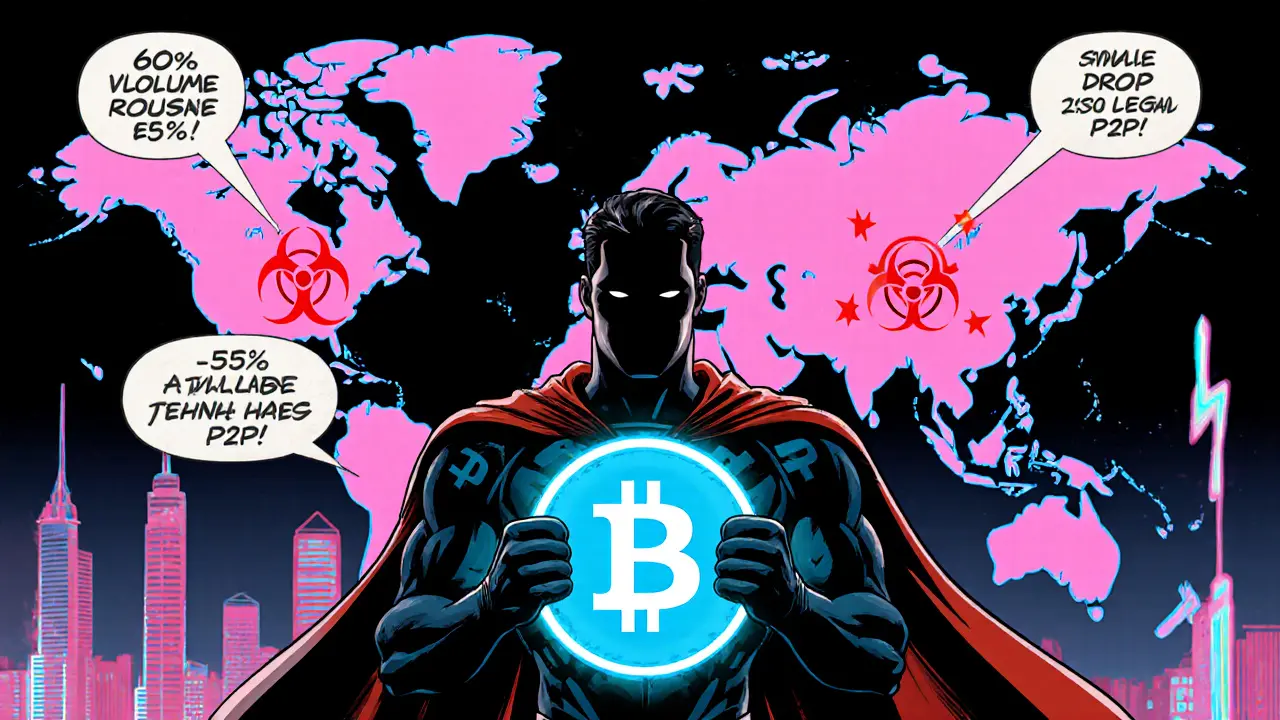Crypto Exchange Restrictions
When dealing with crypto exchange restrictions, rules that limit how, where, or who can trade digital assets on a platform. Also known as exchange bans, they determine which users can buy, sell, or move coins across borders. Crypto exchange restrictions are not just random blocks; they encompass country bans, government‑imposed prohibitions on crypto activity within a jurisdiction and they require crypto regulation, legal frameworks that define what exchanges must comply with to operate legally. In practice, an exchange may be fully functional in one market but completely shut down in another because the local regulator enforces a ban. This dynamic creates a patchwork of access that traders need to navigate daily.
Key Factors Shaping Exchange Access
One of the most common work‑arounds people discuss is VPN usage, the practice of routing internet traffic through servers in other countries to bypass local restrictions. A VPN can let a user appear to be in a region where the exchange is allowed, but it also raises legal and security questions. For example, the China VPN for Crypto Access article shows how using a VPN there can lead to heavy penalties, while the Myanmar Underground Crypto Market piece illustrates how traders rely on VPNs to keep a hidden market alive despite a total ban. These cases prove that country bans directly influence the demand for VPN tools, and governments are tightening the net around both. At the same time, jurisdictions like Pakistan have shifted from a full ban to a regulated framework, as detailed in the Pakistan Crypto Regulation 2025 guide, showing that crypto regulation can evolve from prohibition to permission, altering the compliance landscape for exchanges worldwide.
Beyond the technical tricks, exchanges themselves must adapt to the patchwork of rules. Platforms such as Bitbank in Japan, Mercatox globally, and ArthBit in India each tailor their KYC procedures, fee structures, and market offerings to match local expectations. When a new restriction appears—say, a tightened AML rule in the EU—these exchanges quickly rollout updates to stay compliant, or they risk being blacklisted. For traders, this means staying informed about both the exchange’s internal policies and the external legal environment. Our collection below breaks down how specific exchanges respond to restrictions, what compliance steps you should take, and which regions are currently the most open or closed. Whether you’re looking for a safe way to trade while respecting local law, or you need a guide on using privacy tools responsibly, the articles ahead give you practical insights to move forward without hitting a wall.

P2P Crypto Trading Volumes in Restricted Countries - 2025 Data
Explore how sanctions, exchange policies, and local laws shape P2P crypto trading volumes in restricted countries, with data, trends, and future outlook for 2025.
August 2 2025